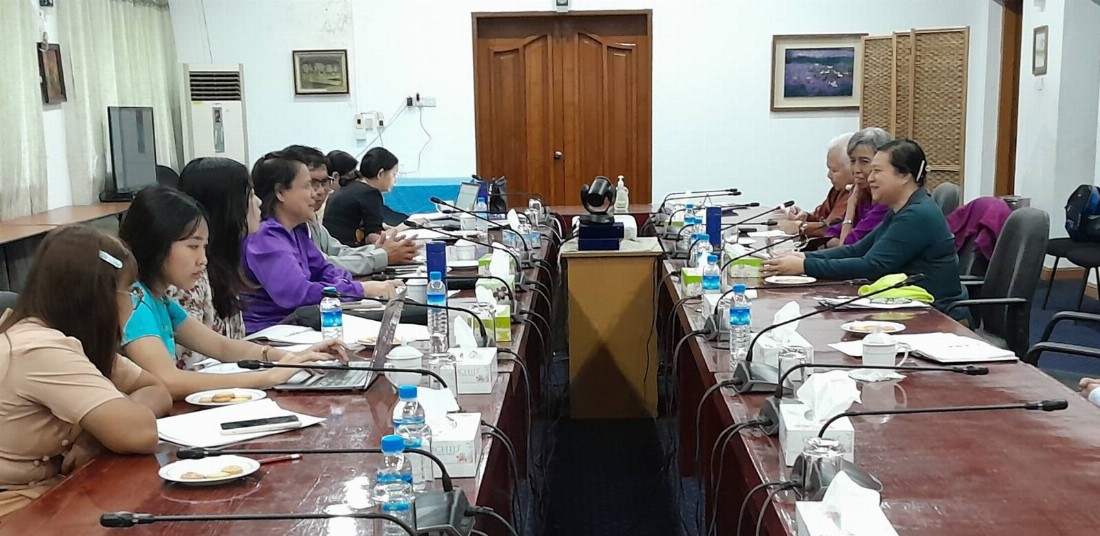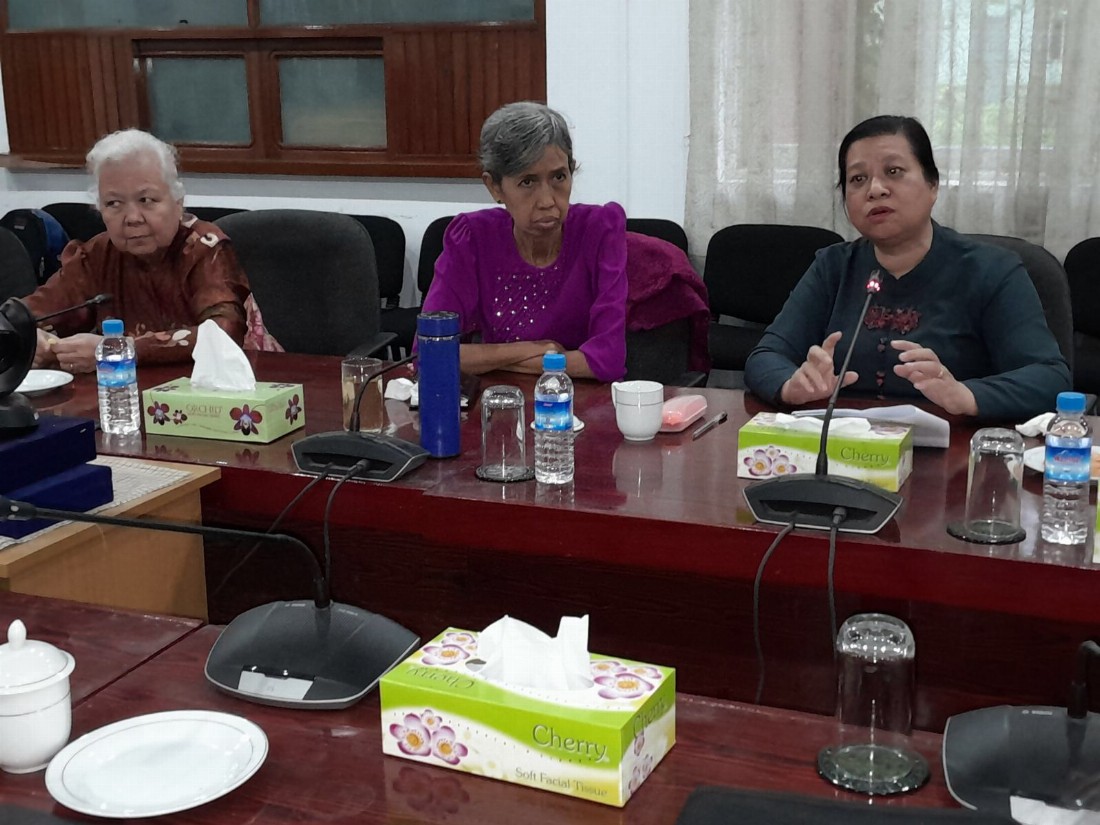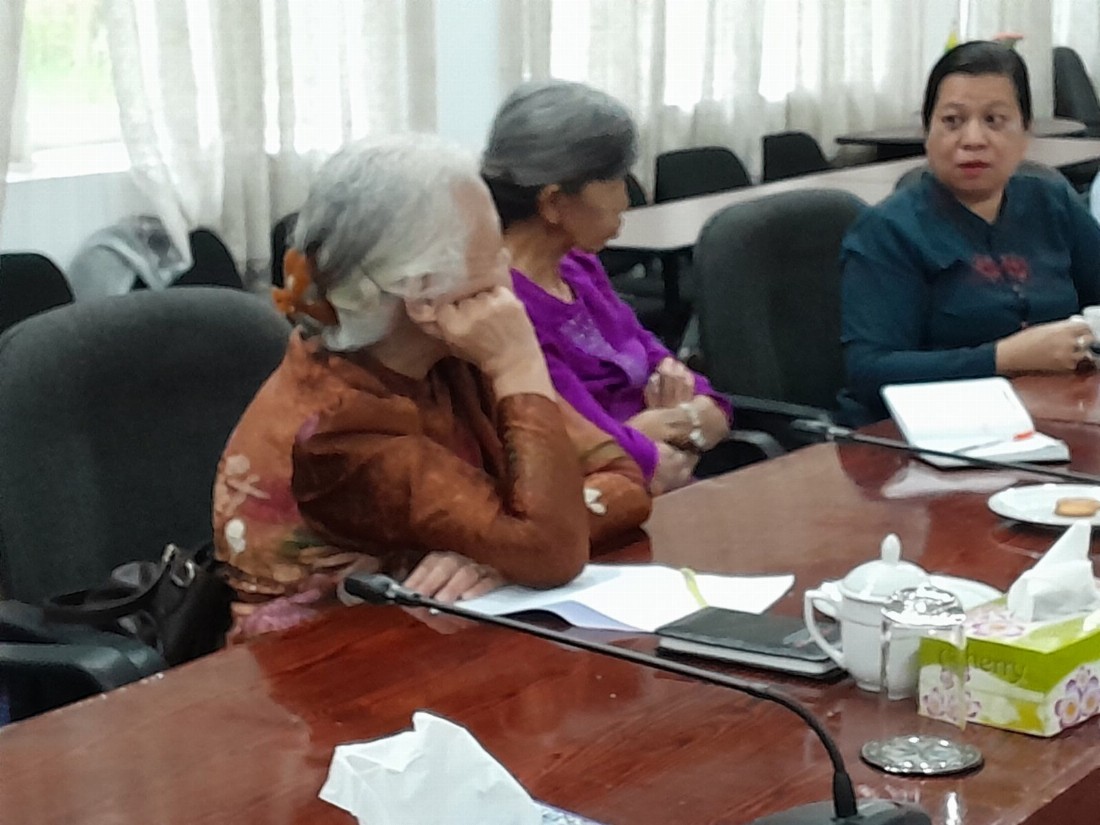myanmar - prevention
Khin Ma Ma Myo

- Actor/Organisation
- Khin Ma Ma Myo / Department of International Relation, University of Yangon
- Current Title/Designation
- Professor, Department of International Relation, University of Yangon
- Expertise/Focus Area
- Prevention
- Date of Interview/Research
- 10 September 2024
- Location of Interview
- Yangon
- Diplomacy Track
- 1.5
Starting Point
Ms. Khin Ma Ma Myo is a Professor at the Department of International Relations and Political Science, University of Yangon, Myanmar. She has an extensive academic background and has been conducting conflict management as well as resolution classes since 2005-2006. Additionally, she has written papers and contributed to discussions on peace, including a notable paper for the Pacific Forum CSIS in Hawaii. Her academic work sheds light on Myanmar’s complex history of crises and conflicts, which began soon after the country’s independence in 1948.
Motivated by a deep concern for the continuous crises in her country, she became an advocate for peace and conflict resolution. In her view, Myanmar’s conflicts are driven by specific armed groups seeking power, rather than broad-based ethnic or religious conflicts. She believes in addressing misconceptions about ethnonationalism, stressing that not all ethnic groups are involved in armed struggles and that peaceful cooperation is possible. Her vision involves creating awareness and understanding to reduce fear and discrimination.
Her focus areas include peace processes, conflict resolution, ethnic relations, and transitional justice. Through her teaching, writing, and participation in peace-related forums, she aims to foster greater awareness and contribute towards peace in Myanmar.
Peace Journey
Her work covers various conflicts in Myanmar, primarily focusing on ethnic and territorial disputes. She recorded that the country has been in a state of unrest since its independence, with numerous ethnic armed groups seeking territorial control and autonomy. These include the Kayin, Kachin, Shan, Mon, and Rakhine State groups. According to her, each of these groups has its motivations and interests. However, not all act as representatives of their respective ethnic populations.
She emphasises that the conflicts in Myanmar are not ethnic-religious conflicts by themselves but are driven by certain factions that use ethnicity as a cover for political goals. For instance, the Kayin National Union (KNU) does not represent the entire Kayin ethnic group, it is only an armed faction. Similarly, the Kachin Independence Army (KIA) arose from perceived religious discrimination, while the Myanmar National Democratic Alliance Army (MNDAA) has been involved in territorial conflicts in the Kokang region.
Further, she has actively contributed to discussions on Myanmar’s peace process. She has participated in several international training programmes and workshops related to peace and security, including sessions on Myanmar’s security sector and peacebuilding processes. She advocates for a phased approach to peace, starting with ceasefire agreements followed by confidence-building measures. She also believes transparency, timely information, and transitional justice are key factors in resolving conflicts.
Regarding women’s involvement in peace processes in Myanmar, she stated that it has not faced significant challenges. Women have enjoyed the right to vote for many years and can rise to leadership positions if they possess the necessary educational background and professional experience. She reflected from her success in carrying dual role as an academic and peace advocate. Despite Myanmar’s long history of protracted conflicts, she observes that women have ample opportunities to make meaningful contributions, particularly in academic, advisory, and decision-making roles.
Success Stories
One of her key achievements is promoting the idea that Myanmar’s conflict is not solely based on ethnic or religious divisions. This has helped to change the narration about the conflict and opened up more inclusive discussions about peace. She has also highlighted the importance of the Disarmament, Demobilisation, and Reintegration (DDR) programme as a critical step towards sustainable peace, noting that armed groups must be provided with basic facilities to prevent the exploitation of vulnerable populations.
Lessons from her experience include the realisation that peace processes are slow and require a step-by-step approach, especially when working with numerous conflicting parties with different interests. Her belief in the importance of education, awareness, and trust-building in resolving conflicts has guided her contributions to Myanmar’s peace efforts.
-
Implementing AgencyAWPR Myanmar
-
Lead ResearcherMs. Khin Sabai
-
Co-Researcher/Research Assistant(s)Ms. Eaindra Khin, Ms. Htet Yadanar Win, Ms. Nwet Nwet Yi, Ms. Mya Lwin Lwin Aung
-
Date ResearchMay 2024-December 2025






